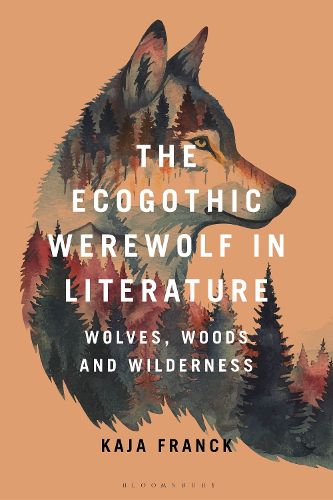Readings Newsletter
Become a Readings Member to make your shopping experience even easier.
Sign in or sign up for free!
You’re not far away from qualifying for FREE standard shipping within Australia
You’ve qualified for FREE standard shipping within Australia
The cart is loading…






Using an Ecogothic lens, this book offers a new conceptual framework for the werewolf in literature, recasting the lycanthrope as an emblem for society's fear of untamed wilderness. Tracing lycanthropy from a place of liminality to hybridity and to myriad and complex subjectivities, The Ecogothic Werewolf in Literature reassesses the Gothic werewolf to show how the relationship between humans and wolves has influenced its representation in literature. Starting with Dracula and tracing lycanthropic imaginings through natural histories, folk and fairy tales to contemporary iterations in the works of Maggie Stiefvater, Whitley Strieber and Glen Duncan, Kaja Franck reconsiders the trope of the 'beast within' in the werewolf canon.
From early conservationist Aldo Leopold's awakening regarding the death of wolves, to George Monbiot's call to rewild, tensions around humanity's responsibility to the natural world have emerged in lycanthropic literature. A challenge to previous anthropocentric analysis of Gothic horror's stock monster, Franck considers the changing attitude towards wolves alongside the growing environmentalism movement and reclaims the wolf from the figure of the werewolf.
$9.00 standard shipping within Australia
FREE standard shipping within Australia for orders over $100.00
Express & International shipping calculated at checkout
Using an Ecogothic lens, this book offers a new conceptual framework for the werewolf in literature, recasting the lycanthrope as an emblem for society's fear of untamed wilderness. Tracing lycanthropy from a place of liminality to hybridity and to myriad and complex subjectivities, The Ecogothic Werewolf in Literature reassesses the Gothic werewolf to show how the relationship between humans and wolves has influenced its representation in literature. Starting with Dracula and tracing lycanthropic imaginings through natural histories, folk and fairy tales to contemporary iterations in the works of Maggie Stiefvater, Whitley Strieber and Glen Duncan, Kaja Franck reconsiders the trope of the 'beast within' in the werewolf canon.
From early conservationist Aldo Leopold's awakening regarding the death of wolves, to George Monbiot's call to rewild, tensions around humanity's responsibility to the natural world have emerged in lycanthropic literature. A challenge to previous anthropocentric analysis of Gothic horror's stock monster, Franck considers the changing attitude towards wolves alongside the growing environmentalism movement and reclaims the wolf from the figure of the werewolf.